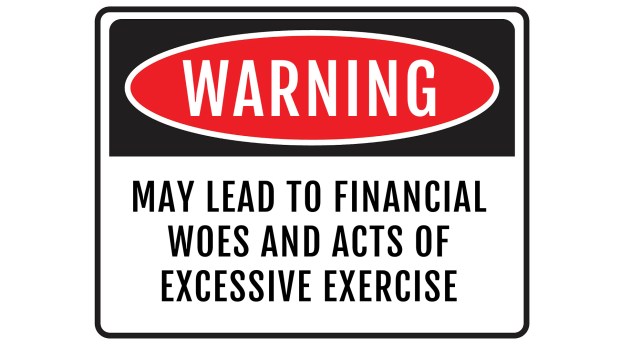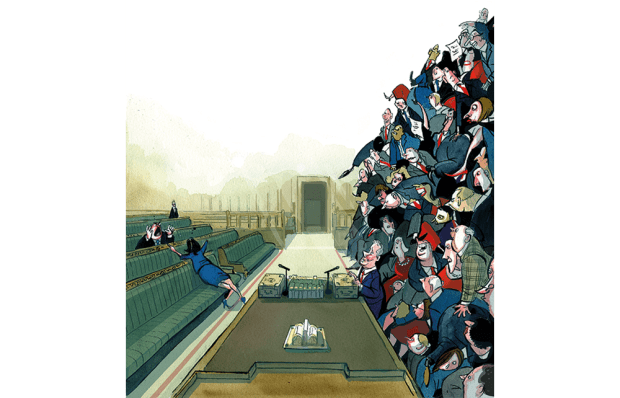Applying myself
Sir: It was interesting to read David Abulafia’s rather damning critique of the Oxbridge admissions process (‘Who’s out’, 14 May), given the fact that he entirely contradicts much of what he must have seen as a professor of history at Cambridge. Abulafia criticises the fact that ‘candidates from one type of school with better scores (on the TSA) are being turned away in favour of those from another type of school with lower scores’. I’m a Year 13 student at a state school and was turned away from Cambridge this year after applying to study philosophy. For me, there was little to no advice given by the school, and no friends or family members or teachers to ask about it (as none have been to Oxbridge). Perhaps Abulafia could visit a state school like mine to see the difference. He would realise that although private-school candidates look further over the educational wall, it is because they are standing on a much larger box. It is the role of these world-leading institutions to give promising state-school pupils the education they deserve, over those from private schools who have been given every tool for success.
Alex Wells
Witney, Oxfordshire
Crime and non-crime
Sir: How disappointing that Nick Herbert, chair of the College of Policing, should seek to justify its actions (Letters, 14 May) without making any reference to the substance of Toby Young’s complaint, which was that about 250,000 ‘non-crime hate incidents’ are recorded per year. Accusing a person of one can affect the rest of their life. Meanwhile, the police solve about 5 per cent of all burglaries. Given that NCHIs are by definition not crimes, this seems unreasonable.
Dr Ken Pollock
Cheltenham, Glos
Police priorities
Sir: I have to take issue with John Evans’s suggestion that the police lack the resources to make a serious attempt at tackling the tidal wave of fraud in this country (Letters, 21 May). Resources are never infinite, so it is a matter of priorities. Various police forces have found the resources to seize cameras from peers of the realm and delete pictures disliked by Labour party apparatchiks (West Sussex), to film people committing such crimes as walking their dogs in the Peak District (Derbyshire), to search people’s shopping for non-essential items (Northamptonshire), to surround and fine two women for drinking coffee on a walk (Derbyshire again), to spend millions investigating spurious allegations of abuse by a known fantasist (Metropolitan Police), and to intimidate journalists for the crime of misgendering someone on Twitter (Surrey).
Who can blame ministers and police chiefs for prioritising these important matters for resourcing over such trivialities as fraud, burglary, mugging and rape?
Dr Richard Austen-Baker
Abbeystead, Lancashire
No return of the Mac
Sir: Did Harold Macmillan really consider appointing himself provost of Eton, as Charles Moore surmises (The Spectator’s Notes, 14 May)? Alas, he never had the chance. Sir Claude Elliott, appointed in 1949, reigned throughout Macmillan’s premiership. On Sir Claude’s retirement in 1965, Harold Wilson appointed Lord Caccia, a highly successful ambassador in Washington after Suez. Macmillan was desperately disappointed. His brilliant biographer, D.R. Thorpe, makes clear in Supermac (2010) that ‘he would have been an active provost, more so than circumstances allowed him to be as chancellor of Oxford University’. How he would have loved presiding at dinner in Eton on one night, and in Oxford the next.
Alistair Lexden
House of Lords, London SW1
Covid politics
Sir: It’s naive of Kate Womersley to take Devi Sridhar’s scathing critique of Boris Johnson’s handling of Covid at face value (Books, 21 May). She isn’t just an advisor to Nicola Sturgeon’s government, she’s also a big fan of the SNP, as The Spectator’s own Steerpike blog has often pointed out. A more valuable contribution from Professor Sridhar would have been a reflection on why the Covid crisis was allowed to become so horrendously politicised in Scotland, and whether highly paid technocrats should get involved in politics at the cost of their professional objectivity and disinterestedness.
John-Paul Marney
Edinburgh
Sing a song of sixpence
Sir: Charles Moore, recalling the Queen’s 1969 introduction to the Victoria line, does the standard thing and translates sixpence into ‘2½p’ (The Spectator’s Notes, 21 May). Can The Spectator please be the first to abandon this meaningless conversion? The lovely coins of my childhood were a different language from the ugly discs of today. They were earned in different ways, by entirely different people, who spent them on different things. I always associated the silver sixpence with something pleasurable, a bar of chocolate or a copy of the Beano, things which 2½p could not begin to buy. Right up to the end of the 1960s, five shillings could buy you a thick Penguin book. To render this sum as ‘25p’ is like trying to put Homer into Estuary English.
Peter Hitchens
London W8
The fast descent
Sir: Laurie Graham’s article about nannying announcements reminded me of an amusing incident on the terrace of Mount Pilatus near Luzern (‘Voice of concern’, 21 May). A local guide was explaining to a party of American tourists that it was possible to climb to the summit by a stairway partly carved out of the rock. One lady looked up at it and said: ‘It doesn’t have railings. What happens if you fall?’ The reply was concise and accurate. ‘You die, Madam.’
M. Tinney
Laxfield, Suffolk
Got something to add? Join the discussion and comment below.
Get 10 issues for just $10
Subscribe to The Spectator Australia today for the next 10 magazine issues, plus full online access, for just $10.
You might disagree with half of it, but you’ll enjoy reading all of it. Try your first month for free, then just $2 a week for the remainder of your first year.














Comments
Don't miss out
Join the conversation with other Spectator Australia readers. Subscribe to leave a comment.
SUBSCRIBEAlready a subscriber? Log in